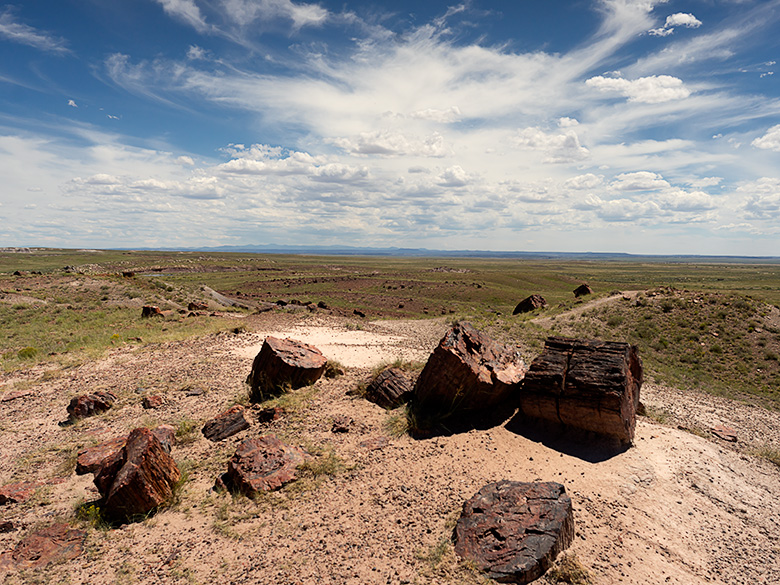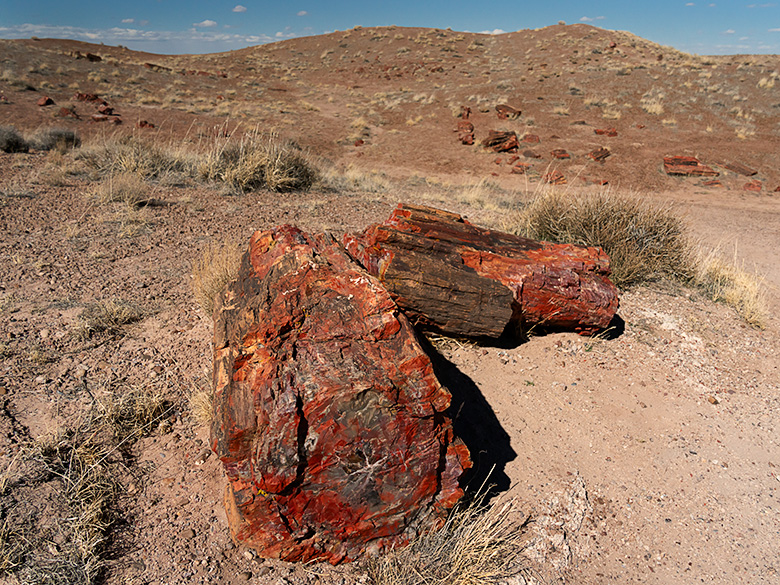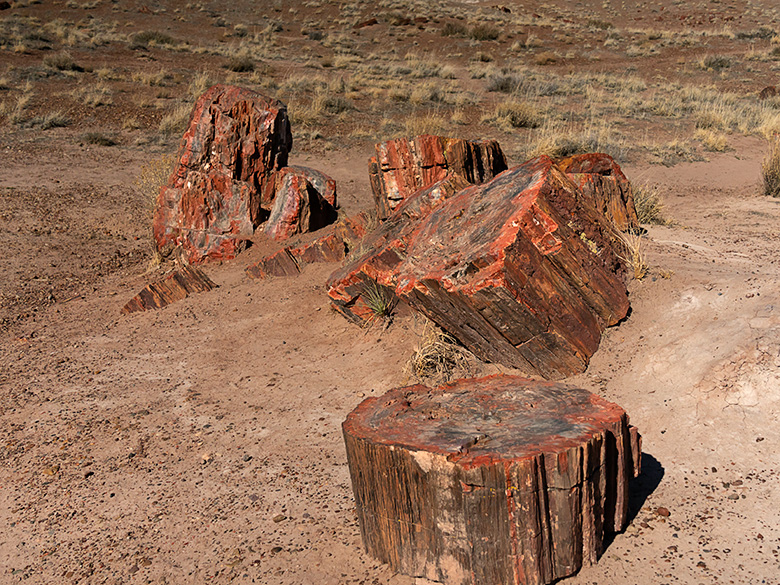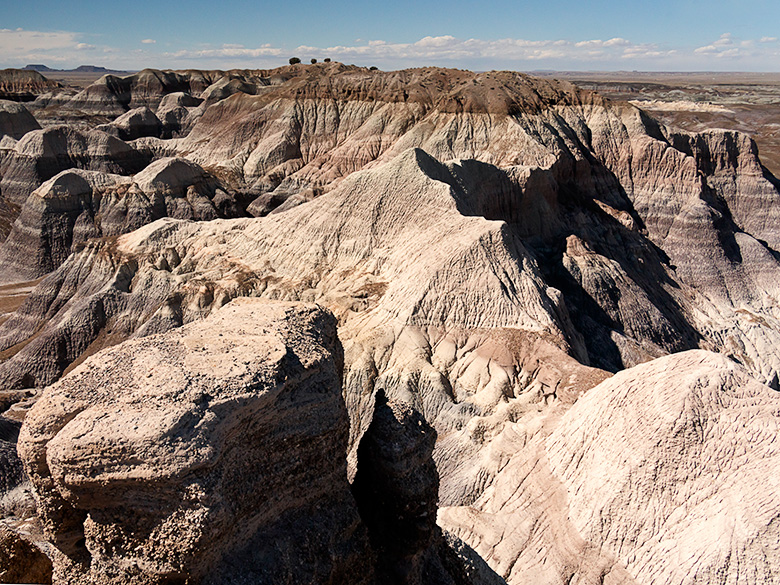
We were parked on Blue Mesa in Petrified Forest National Park under a new moon when something strange happened. One moment, it was a quiet desert night—just me, Queen Anne snoozing in the truck, and a few restless coyotes yipping in the distance. The next second, everything went dead silent.
Then, as if the universe was playing a cosmic joke, the planets aligned in perfect alphabetical order across the sky. I didn’t even know that was possible. Maybe Jupiter bribed Mars to cut in line. Either way, it felt like the kind of thing that shouldn’t happen unless reality had a glitch.
And then, out of nowhere, a weird blue light appeared. It wasn’t headlights or a flashlight beam—this thing swirled like a dust devil but didn’t kick up dust. Instead, it glowed like the inside of a plasma ball at a science museum. Anne told me to stay in the truck. Naturally, I didn’t listen.
I edged closer. The light wasn’t just floating—it was a hole—a hole in the universe, a hole that swallowed the stars behind it. The sheer impossibility of its physics beckoned me closer yet filled me with an instinctual dread.
Retreating momentarily, I fetched a new tee shirt from our recent gift shop visit, wadded it into a makeshift projectile, and lobbed it at the spectral phenomenon. On contact, the light flared like a campfire doused in brandy, the tee shirt evaporating into a blaze of unknown physics. In its place, a window appeared—one that looked out onto another world.
Except it wasn’t another world. It was this world—just a couple hundred million years earlier.

The contrast was striking. Below me, the landscape stretched out at a significantly lower elevation, nowhere near the mile-high expanse of the modern Colorado Plateau. The sun blazed directly overhead, a stark reminder that this land had once been closer to the equator. What had been a blue-gray dust bowl moments ago was now lush and green—forests of towering Norfolk Island Pines lined the banks of a river fed by distant volcanoes.
A sense of awe welled inside me. I was witnessing the Triassic Period—the dawn of the dinosaurs. This was the initial deposition of what would one day become the Chinle Formation. I recalled from my readings that this geological stratum could reach staggering thicknesses of up to 1,000 feet, layering mud, volcanic ash, and silt into a colorful geological record. Each layer was a story in minerals left behind by cataclysmic floods—floods that had entombed trees, animals, and entire ecosystems in time.
I turned to tell Anne, but she was out cold—head propped against the window, breathing fogging up the glass with every snore. Occasionally, one got loud enough to jolt her awake, only for her to blink in confusion and drift right back off. The coyotes had gone silent, probably unnerved by the glowing vortex, but Anne’s snores carried on, oblivious to time travel unfolding just outside her window.
As I turned back to the portal, movement along the tree line caught my attention. A herd of dinosaurs grazed contentedly on the lush ferns, their stocky bodies covered in what looked like prehistoric leather armor. They had the build of a hippo, the tusks of a walrus, and the personality of a slightly confused cow. Upon later research (a.k.a. Wikipedia), I learned these were Placerias, some of the last big herbivores before the actual dinosaurs took over.
I watched in fascination—until I noticed two of them playing with an orange Frisbee. No, seriously. One scooped it up with his tusks and flung it across the meadow. The other caught it, twirled it, and then sent it flying back with an expert head flick—a prehistoric game of fetch.
That’s when I saw it. One of them was wearing my tee shirt.

Reality teetered. Somehow, the vortex wasn’t just a window—it was a two-way door. My gift shop souvenir had traveled through time, and now, a pair of Placerias named (in my mind) Gonzo and Norm were engaged in a high-stakes game of Triassic Ultimate Frisbee.
Their game was a peculiar sight—half-fetch, half-soccer, with all the earnestness of Olympic competitors. It was a scene of sporting prowess that would have baffled even the most imaginative sports commentator. Amid my amusement and disbelief, a part of me couldn’t help but feel a touch envious of their uninhibited joy—a stark contrast to my usual self-deprecation and haplessness, which at that moment seemed confined to the sidelines of time.
It was a bizarre sight—part football scrimmage, part comedy routine. Norm, the bulkier of the two, lined up his shots while Gonzo made wild, dramatic leaps for the disc. The game might have gone on forever without a sudden, ominous shift in the air.
Dark clouds swelled over the distant volcanoes. A deep rumble rolled through the valley. The river that had seemed so tranquil moments ago was now choked with debris, swelling at an alarming rate. It wasn’t just a storm—it was a flood—a Triassic monsoon.
The realization hit me—this is how the fossils formed. This was the very moment when entire forests were buried, trees transformed into stone, and creatures like Gonzo and Norm were swallowed by history.
The Frisbee dropped. Gonzo and Norm turned, finally sensing the danger. They ran. Well, they tried to. Norm’s stubby legs churned in slow motion while Gonzo, the optimist, still attempted one last throw. The roar of the flood drowned out their squeals. Within seconds, a massive wave of mud and debris swallowed them whole.
The portal flickered. The colors blurred. And then, it was gone.
The coyotes started howling again. Anne stirred. “You ready to return to the motel?” she mumbled sleepily.
I nodded, glancing at the now-empty desert. The past was the past again.
Before leaving Holbrook the following day, we stopped at the park’s gift shop. I searched for a replacement T-shirt but found nothing. Then, as if on cue, the cashier said, “Funny thing—rangers found one like that near a dig site. It’s in lost and found. Want to see it?”
She handed me a stretched, dirt-crusted shirt—with a punctured orange Frisbee sitting underneath it.
I stared. I laughed. And I took it. Because sometimes, the universe has a way of letting you keep the souvenirs that really matter.

Thank you for joining me on this incredible Petrified Forest National Park journey. Suppose you’ve enjoyed this tale of prehistoric whimsy and modern-day mystery. In that case, I invite you to explore larger versions of this month’s images on my New Work Portfolio. These photos will be displayed there for three months before being rotated.
As the echoes of the ancient past slowly fade, let’s turn our gaze to a different historical exploration. Next month, join me for a night among the neon and nostalgia of Gallup’s abandoned motels. We’ll explore the haunting beauty of old motel signs, capturing the stories they whisper to the desert winds. Don’t miss this eerie yet visually captivating journey—subscribe now to get a reminder as soon as we go live.
Until then, keep exploring the layers of history around you, and perhaps you’ll discover your own story woven into the fabric of time.
jw
